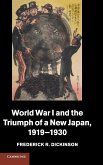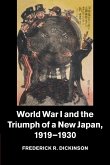A rich empirical account of China's foreign economic policy towards Japan after World War Two, drawing on hundreds of recently declassified Chinese sources. Amy King offers an innovative conceptual framework for the role of ideas in shaping foreign policy, and examines how China's Communist leaders conceived of Japan after the war. The book shows how Japan became China's most important economic partner in 1971, despite the recent history of war and the ongoing Cold War divide between the two countries. It explains that China's Communist leaders saw Japan as a symbol of a modern, industrialised nation, and Japanese goods, technology and expertise as crucial in strengthening China's economy and military. For China and Japan, the years between 1949 and 1971 were not simply a moment disrupted by the Cold War, but rather an important moment of non-Western modernisation stemming from the legacy of Japanese empire, industry and war in China.
Hinweis: Dieser Artikel kann nur an eine deutsche Lieferadresse ausgeliefert werden.
Hinweis: Dieser Artikel kann nur an eine deutsche Lieferadresse ausgeliefert werden.








